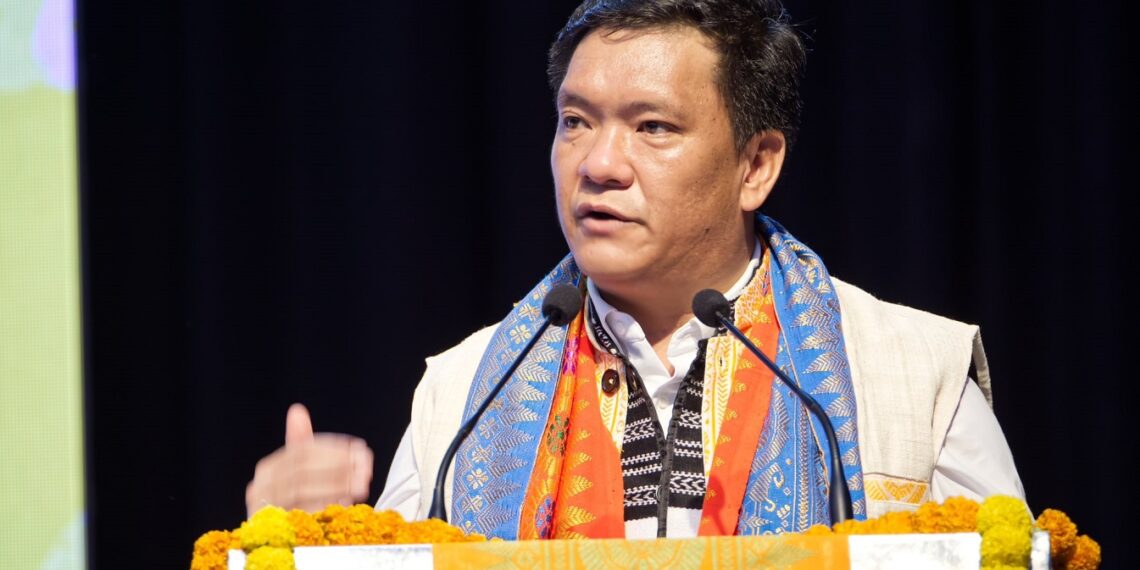ITANAGAR: The vexed border row between Arunachal Pradesh and Assam is nearing a resolution, and stating that Arunachal Pradesh Chief Minster Pema Khandu attributed this development to the ruling National Democratic Alliance (NDA) in the Centre.
“We’ve overcome the challenges that persisted due to the lack of sincerity in past approaches. The BJP government’s resolute resolve of ‘Abhi Nahi Toh Kabhi Nahi’ has paved the way for our achievements,” Khandu was quoted as saying in the local press on August 20.
Informing that the longstanding dispute along the inter-state boundary between the two neighbouring states is “nearly over”, Chief Minister Khandu said that conflicts, particularly in the areas inhabited by the Bodo community, has seen significantly resolved barring a few brackets.
The Chief Minister, who was addressing the inaugural interactive session on “Understanding socio-cultural issues of Bodos in Arunachal”, lauded the concert efforts of all stakeholders in promoting cultural cooperation and amicable relations between the two states. With conviction, openness, and compassion at the forefront, both Assam and Arunachal Pradesh are charting a path towards greater cultural cohesion, Khandu said.
Responding to a proposal put forth by the Bodo Territorial Region (BTR), Khandu pledged to establish a dedicated cultural centre for the Bodo community in Itanagar, demonstrating his unwavering support for their aspirations.
“For our Bodo brothers and sisters residing in Arunachal Pradesh, I assure them of my complete cooperation and support in the times ahead,” Khandu said.
In April 2023, Chief Minister Khandu and his Assam counterpart, Himanta Biswa Sarma had signed a historic Memorandum of Understanding (MoU) to resolve the vexed border disputes between the states and that had garnered praise from Union Home Minister Amit Shah.
The agreement addresses the border disputes between the two states, focusing on 123 border villages spanning 12 districts of Arunachal Pradesh and 8 districts of Assam. This significant step has paved the way for collaborative growth and prosperity, solidifying the commitment of both states to a future characterised by cooperation and mutual respect.















